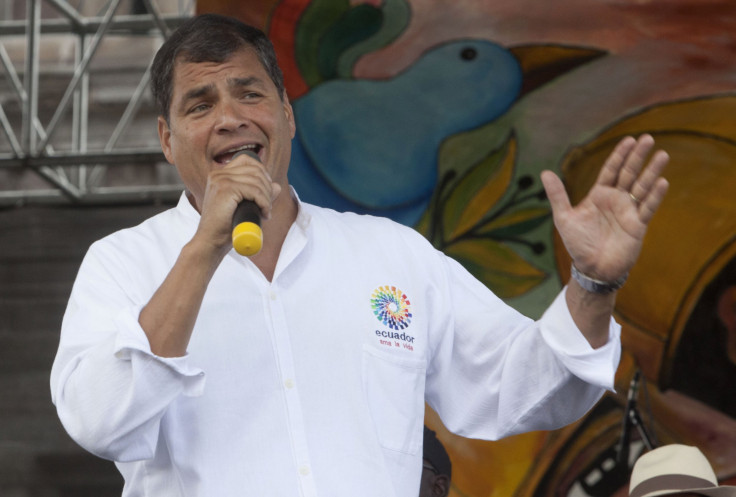A Political Relationship With Edward Snowden Could Jeopardize Ecuador's Economic Relationship With The US

Ecuadorean President Rafael Correa's left-wing politics are clashing with his sophisticated economic sensibilities.
The decision on whether to grant asylum to National Security Agency leaker Edward Snowden, wanted by the U.S. government for espionage, comes just weeks before a July vote in the U.S. Congress to renew a unique trade deal that benefits Ecuador.
Ecuador is the last remaining South American nation that still has a 1991 trade agreement with the U.S. that lets it export goods to the U.S. tariff-free. This benefit, known as the Andean Trade Promotion and Drug Eradication Act (Atpdea), comes in exchange for cooperation with the U.S. in its war on drugs.
The tariff exemption affects more than 6,000 different Ecuadorean exports including oil, bananas, shrimp and flowers. It supports about 400,000 jobs in the nation of 14.6 million people, and the Ecuadorean embassy in the U.S. has been lobbying Washington to keep the deal in place since last May, when it launched a campaign called "Keep Trade Going." The push is meant to win over lawmakers with a claim that "special interests are threatening jobs and justice for thousands of people in the U.S. and Ecuador who depend on trade."
Correa is apparently getting the message from Washington that giving asylum to Snowden could cause Congress not to renew Atpdea, which affects 43 percent of his nation's total exports. During a recent national broadcast speech, Correa accused the United States of using a "vulgar instrument of foreign policy."
"If you behave; I'll let you have the Atpdea," said Correa. "If you misbehave, I'll take it away."
The mere fact that Correa, who got his Ph.D. in economics from the University of Illinois, is considering giving Snowden asylum may -- in his mind at least -- have killed or at least endangered prospects for a renewal of Atpdea.
High oil prices, a growing domestic mining industry and strengthening ties with China may give Correa a sense of protection from U.S. repercussions. But Correa, though re-elected in February with 57 percent of the vote, faces a mix of support and disinterest from people in the struggling nation. Ecuadorean Foreign Minister Ricardo Patiño spoke briefly to reporters on Monday and said Snowden had in fact requested asylum in Ecuador, and that the government is "analyzing it with a lot of responsibility."
© Copyright IBTimes 2024. All rights reserved.






















